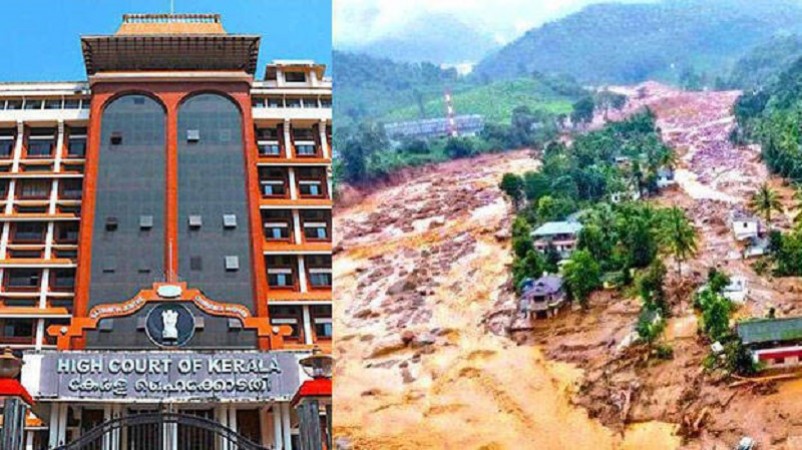
The devastating landslides in Wayanad, Kerala, which claimed over 200 lives, are yet another example of nature reacting to human neglect and greed, the Kerala High Court has observed. The court stated that warning signs of such disasters have been visible for years, but have been ignored in favor of development projects aimed at economic growth.
Referring to past calamities like the 2018 and 2019 natural disasters, as well as the ongoing pandemic, the court remarked that these events should have served as a wake-up call. "If we do not change our ways and take corrective actions now, it may soon be too late," said a bench of Justices A K Jayasankaran Nambiar and Syam Kumar V M. The court made these remarks while hearing a plea it initiated after the July 30 landslides that destroyed three villages in Wayanad, with 119 people still missing.
The court took up this case to urge the state government to rethink its approach to sustainable development and review its policies. The bench stated that the court would assess Kerala's existing policies on the use of natural resources, environmental preservation, disaster management, and sustainable development.
The court emphasized the need for intervention to gather information and enlist the help of institutions to identify ecologically sensitive areas in Kerala. This data would help the state revise its policies regarding resource exploitation, forest conservation, and disaster management.
The court outlined a three-stage plan for addressing these concerns. The first stage will involve collecting scientific data to identify and notify ecologically sensitive areas across districts. The second stage will focus on ensuring that regulatory agencies and advisory boards are properly composed to meet their objectives effectively. The final stage will involve gathering feedback from people living in sensitive areas through the Local Self Government department, helping the state to reshape its policies on infrastructure, tourism, and resource management.
Additionally, the state will conduct environmental impact assessments and hold public hearings to gather input from local residents on these matters.
The court has also asked the Centre and Kerala government to clarify whether, following recent disasters, they plan to increase the number of experts required under the Disaster Management Act (DMA) 2005. The court further directed them to provide details on the formation and composition of advisory committees at various levels and the status of Disaster Management Plans. Moreover, they are required to disclose funding allocations for disaster management activities and efforts to incorporate safety measures for landslide-prone areas into the state’s Building Rules.
Both governments have been given three weeks to submit affidavits with these details. The court emphasized the importance of meeting the deadlines, given the urgency of the situation.
Recente Updats of Waynad Landslide
Will Loan Write-Offs for Landslide Victims in Wayanad Solve Financial Struggles?
IMD Issues Red Alert for Wayanad Following Deadly Landslides
Nehru Trophy Boat Race Postponed Due to Wayanad Landslide, Rescheduled for Sept